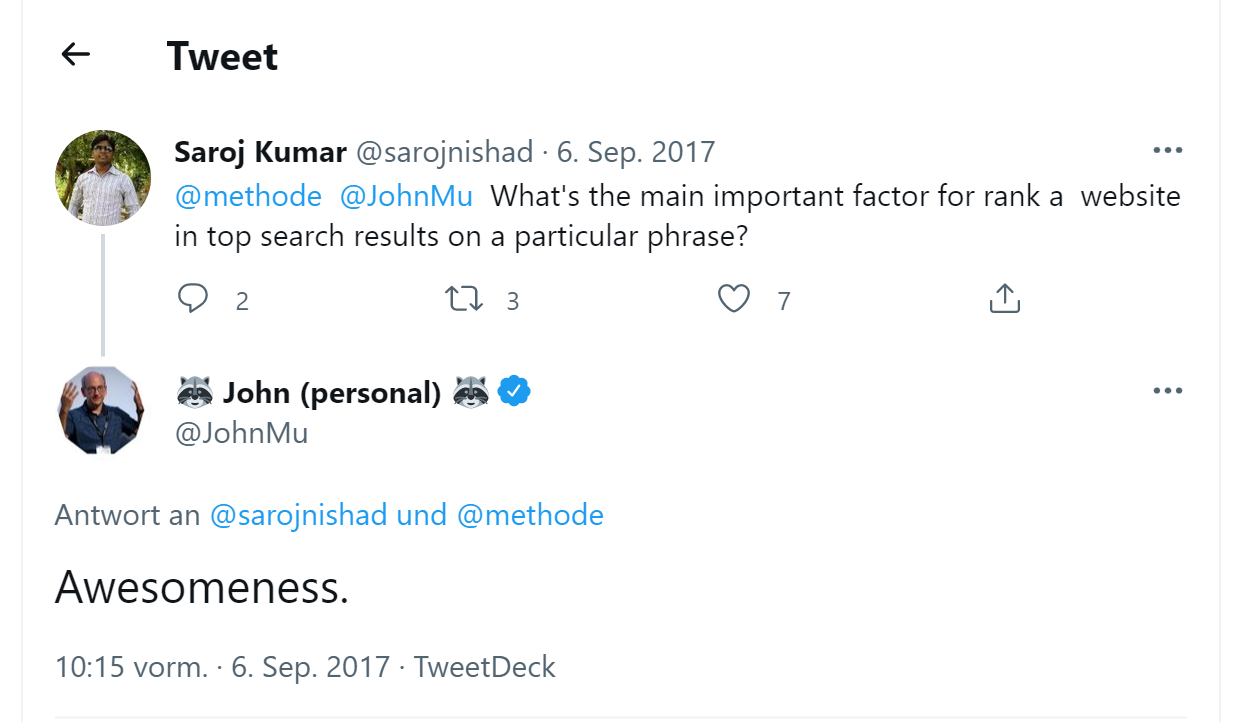All website owners want one thing: a better ranking in search engines. Find out what this means.
A better search engine ranking leads to improved visibility and more website visitors. But what does the word “ranking” or “rank” mean, how does a ranking come about and how can you check it?
In online marketing “ranking” refers to the position of a website in the search results of a search engine.
Since Google is by far the most important search engine, it is also referred to as the Google ranking. The higher the ranking of a website for relevant search queries, the better.
The ranking of websites is the result of the continuous crawling and evaluation of content by search engines.
Important: In this article, we refer to the organic ranking. Above and below the organic search results you will find paid AdWords ads, so it may be that the “organic position 1” only appears at position 4.
Why is a good ranking so important
The importance of a good ranking becomes clear when you look at the click probability in the Google SERPs. Analyses show that around 99% of all organic clicks are on the first ten search results, more than half of them in position 1.
This means that in order for many people to click on your website’s snippet, it must rank as high as possible for relevant keywords. Ideally, it should be in one of the first positions.
After position 1, the click probability decreases rapidly. On the second page, search results are hardly ever clicked on.
How to check the ranking position in Google
There are several ways to find out how a page ranks for a keyword.
- Enter the keyword you want to check your ranking for into Google search. This way you will see where your page appears.
This method is simple, but has several catches: the ranking is not the same for every user. Your location, for example, influences many search results.
In addition, larger companies or online stores want to rank for thousands of keywords so checking the ranking in this way becomes a tedious task.
- Suitable tools are available for professional ranking analyses. With these, you can check the ranking for many different keywords depending on factors such as location and device.
Important: Rankings change continuously. After all, there is constant competition for the best rankings in Google. Algorithm updates also cause pages to “slide” up or down. Therefore, it is important to monitor rankings continuously in order to take countermeasures when required.
Improving Google rankings – these factors are important
Over 200 ranking factors influence the position of a website in Google.
The list is constantly changing. Some ranking factors lose importance, others become more important. Google regularly provides insights into how the search engine evaluates pages, but the exact processes and the complete list of all ranking factors remain in the dark.

The decisive factor: Relevance for users is highly important to Google. After all, the company wants searchers to be satisfied with what they find.
That’s why it’s now much more important to create content that addresses search intent, has added value for your target group, and – depending on the search query – goes into depth, rather than strategically positioning keywords.
At the same time, the importance of technical factors that improve user experience is increasing. These include high loading speeds and strategic internal linking that enables users to easily find their way around the site and reduces bounce rates.
In other words, if your content is optimised for people, the chances of a good ranking increase.